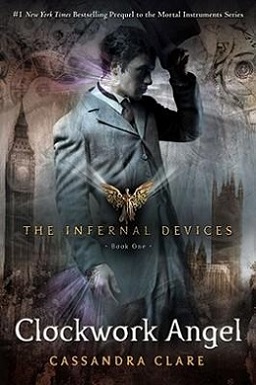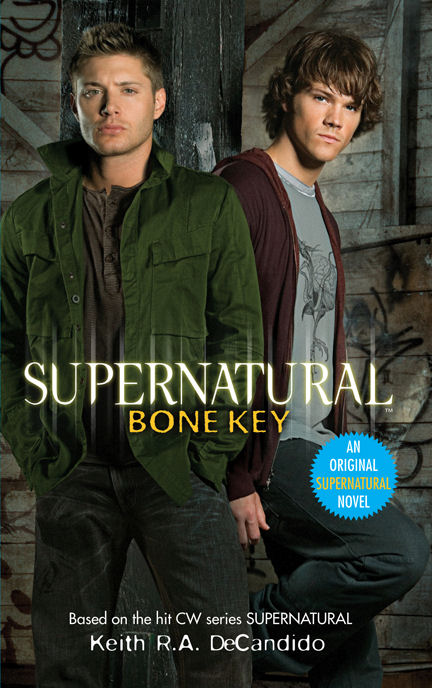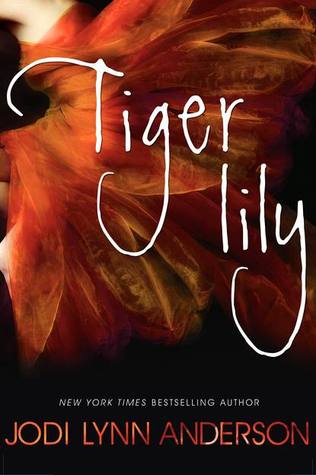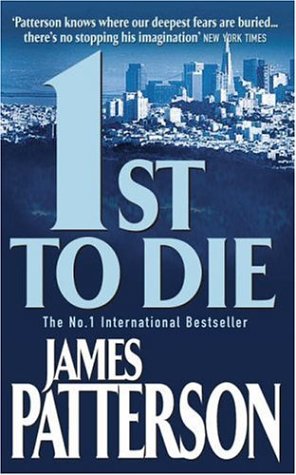
Expiration Day
What happens when you turn eighteen and there are no more tomorrows?
It is the year 2049, and humanity is on the brink of extinction….
Tania Deeley has always been told that she’s a rarity: a human child in a world where most children are sophisticated androids manufactured by Oxted Corporation. When a decline in global fertility ensued, it was the creation of these near-perfect human copies called teknoids that helped to prevent the utter collapse of society.
Though she has always been aware of the existence of teknoids, it is not until her first day at The Lady Maud High School for Girls that Tania realizes that her best friend, Siân, may be one. Returning home from the summer holiday, she is shocked by how much Siân has changed. Is it possible that these changes were engineered by Oxted? And if Siân could be a teknoid, how many others in Tania’s life are not real?
Driven by the need to understand what sets teknoids apart from their human counterparts, Tania begins to seek answers. But time is running out. For everyone knows that on their eighteenth “birthdays,” teknoids must be returned to Oxted—never to be heard from again.
It is the year 2049, and humanity is on the brink of extinction….
Tania Deeley has always been told that she’s a rarity: a human child in a world where most children are sophisticated androids manufactured by Oxted Corporation. When a decline in global fertility ensued, it was the creation of these near-perfect human copies called teknoids that helped to prevent the utter collapse of society.
Though she has always been aware of the existence of teknoids, it is not until her first day at The Lady Maud High School for Girls that Tania realizes that her best friend, Siân, may be one. Returning home from the summer holiday, she is shocked by how much Siân has changed. Is it possible that these changes were engineered by Oxted? And if Siân could be a teknoid, how many others in Tania’s life are not real?
Driven by the need to understand what sets teknoids apart from their human counterparts, Tania begins to seek answers. But time is running out. For everyone knows that on their eighteenth “birthdays,” teknoids must be returned to Oxted—never to be heard from again.
Did you have to do any research before you started writing Expiration Day? If yes what research did you have to do?
At the risk of teaching grandma to suck eggs… For me, the story always comes first. If you haven’t got a viable plot and characters in the first place, you’re wasting your time. Certainly, I don’t sit down and say “I think I’ll write about a girl growing up in India in the 1850s” and then research the whole Raj culture, without having a clue what the story is to be about.
The research comes later, when your plot is unfolding nicely, and you’re starting to fill out your world. In Expiration Day, an example is the scene at the Tower of London. I went there, and realised the scene I’d written wouldn’t work, at least, not the way the fortress is currently laid out. So I looked into the history, learning about how the architecture had changed over the centuries, and looked for a reason why the Traitor’s Gate might have been restored to an earlier state. Hence the reference to the 500th anniversary of Anne Boleyn’s execution in 1536, with some coy references to old King William for fun.
The other, crucial piece of research came about almost by accident. My editor, Susan Chang, was doing that thing editors do, picking holes in the logic. She didn’t believe that parents would just hand back their robot children on their 18th birthdays, and she challenged me to make it plausible. I remembered something I’d read in New Scientist about the ‘Uncanny Valley’ phenomenon. A few hours later and my (for once) disciplined rummaging through the back issues had given me my proper, well-documented scientific explanation. Sadly, not every reader is convinced, but the science is actually strong.
The research comes later, when your plot is unfolding nicely, and you’re starting to fill out your world. In Expiration Day, an example is the scene at the Tower of London. I went there, and realised the scene I’d written wouldn’t work, at least, not the way the fortress is currently laid out. So I looked into the history, learning about how the architecture had changed over the centuries, and looked for a reason why the Traitor’s Gate might have been restored to an earlier state. Hence the reference to the 500th anniversary of Anne Boleyn’s execution in 1536, with some coy references to old King William for fun.
The other, crucial piece of research came about almost by accident. My editor, Susan Chang, was doing that thing editors do, picking holes in the logic. She didn’t believe that parents would just hand back their robot children on their 18th birthdays, and she challenged me to make it plausible. I remembered something I’d read in New Scientist about the ‘Uncanny Valley’ phenomenon. A few hours later and my (for once) disciplined rummaging through the back issues had given me my proper, well-documented scientific explanation. Sadly, not every reader is convinced, but the science is actually strong.
If you could write a novel with another author who would you choose to write the novel with and why?
My first thought was to pick the late Ray Bradbury. His language paints such wonderful pictures, it would be a pleasure to watch. But then, what would I do? Just sit back and watch the master. Not really a collaboration.
So your question is more about matching complementary skills with another writer. It’s dangerous ground, too, as it implies there’s something the other writer doesn’t do well, that I have the hubris to believe I could do better! But I would like to write something with Howard Whitehouse. He writes middle grade fiction for Random House - his new book Zombie Elementary comes out in September - and he does humour so well, something that I’ve yet to pull off in my own writing. He won’t mind me saying, but my science background is stronger than his, so I could imagine us doing something like John Scalzi’s Redshirts but for a teen readership. More important, we have a friendship going waaaay back, so that a writing collaboration might actually work without murder being done.
If you could write yourself as a character in one of your novels how would you describe your character?
In a sense, I already have written myself as a character, or several. All the principal characters In Expiration Day are in some sense “me”. John Czern is a lot like me as I was in my teens – a tinkerer with electronics and computers and a musician. Michael Deeley is more like me as I am now. And Tania…I think if a writer wants to make rounded, believable characters, he has to model them on people he knows well, and of course the person a writer knows best is himself. It’s not just me saying that, either. When friends read Expiration Day, they say that they can see “me” in there. It’s true. I hope they don’t realise how true.
If Expiration Day was made into a movie who would be your ideal cast to play the main characters?
For some of these, I had a very clear picture in my mind when I was writing, so they're chosen for physical resemblance. For the teens, I've plundered the cast of the Harry Potter movies, as they showcased some fine young actors who are probably now too old to play teens. A time machine will be required...Tania- Mara Wilson (Matilda), or Keira Knightley (Atonement, Never Let Me Go). Or Tal Wilkenfeld, who is not an actress, but is a fantastic bassist.
John- Tom Felton (Draco Malfoy:Harry Potter)
Siân- Evanna Lynch (Luna:Harry Potter)
Kieran- Matthew Lewis (Neville Longbottom:Harry Potter)
Michael Deeley- Martin Freeman (Sherlock, The Hobbit)
Annette Deeley- Cate Blanchett (Bandits)
Mrs Hanson- Celia Imrie
Miss James- Vanessa Redgrave
Mrs Golightly- Maggie Smith
Becoming an author is a great job, but if you weren't an author what would you be doing instead?
Unfortunately being an author doesn’t pay the bills, so my day job is to manage a team of software developers. I’ve also been a software developer myself. But if I had to choose something different, I’d love to be an actor.
How long did it take you to write Expiration Day?
Years! I started it in back in August 2006 and finally sold it to Tor Books in December of 2012. But that’s slightly misleading, because I was interleaving that with work on another novel, a MG/YA fantasy set in an alternate London. I’m still trying to find a home for that one.Even when I’d made the Expiration Day sale, it wasn’t finished, as I went through the editing cycle with Susan Chang. We cut 40,000 words off the end and I probably wrote another 40,000 words, including almost all of the courtroom scene – which was originally only 1,500 words and very stark. Even after it went to press I was still writing extra diary entries, which have appeared as supporting material on various websites. So the story is still growing.
Supernatural creatures are a topic lots of people of any age like reading about. What supernatural creature would you choose to be given the choice?
I’m afraid I’m a Hobbit by inclination. Confronted by a dragon, I’d rather talk than fight. I adore mushrooms – a Hobbit passion – and a book-filled writing suite in Rivendell, with lots of interesting elves and other adventurers for company – that would suit me perfectly.
What are your favourite TV programmes and would you recommend them to people?
My regular viewing includes Mastermind and University Challenge. Have I Got News For You is also a great favourite. I do like historical documentaries, and the Brian Cox-style science programs, except that there’s a tendency towards repetition. So often I find myself saying “yes, you already said that five minutes ago – move on.”There are some fascinating dramatisations coming out on the First World War at the moment. One of the stand-out productions is Our World War, which tells so much, so well in just three dramatized memoirs. It managed to avoid the standard trench war clichés for the most part, focussing on the people rather than the mud and the blood. Definitely recommended.
If you could choose another genre to write a novel for what genre would you choose and what would the novel be about?
Well, Expiration Day wasn’t originally conceived as a YA novel, but as part of a longer story into Tania’s adulthood, which would have made it a mainstream Science Fiction novel. Outside of either YA or SF, I’d certainly like to write Historical and Detective fiction.At the moment I’ve got a few thousand words written in that genre, set in the 1830s. There’s a murder, of course, and there’s the class struggle between the workers and the bosses – at that time workers were just beginning to organise themselves into what would eventually become unions. It’s also the time when the first police force was created. So lots of scope for physical conflict, split loyalties. We’ll see how that unfolds..
I have read there will be a sequel to Expiration Day. What plans do you have for after the Expiration Day sequel?
Well, you’ll have seen hints on that already. I do tend to have several projects on the go at once, though. There are a couple of YA/MG novels in final polishing – the alternate London one I mentioned, plus one set in the Bronze age. The 1850s India scenario mentioned above wasn’t meant to be a serious suggestion, but actually I think that’ll end up going onto the project backlog, because it’s the time of the Indian Mutiny, which is a great backdrop against which to set a YA story.










